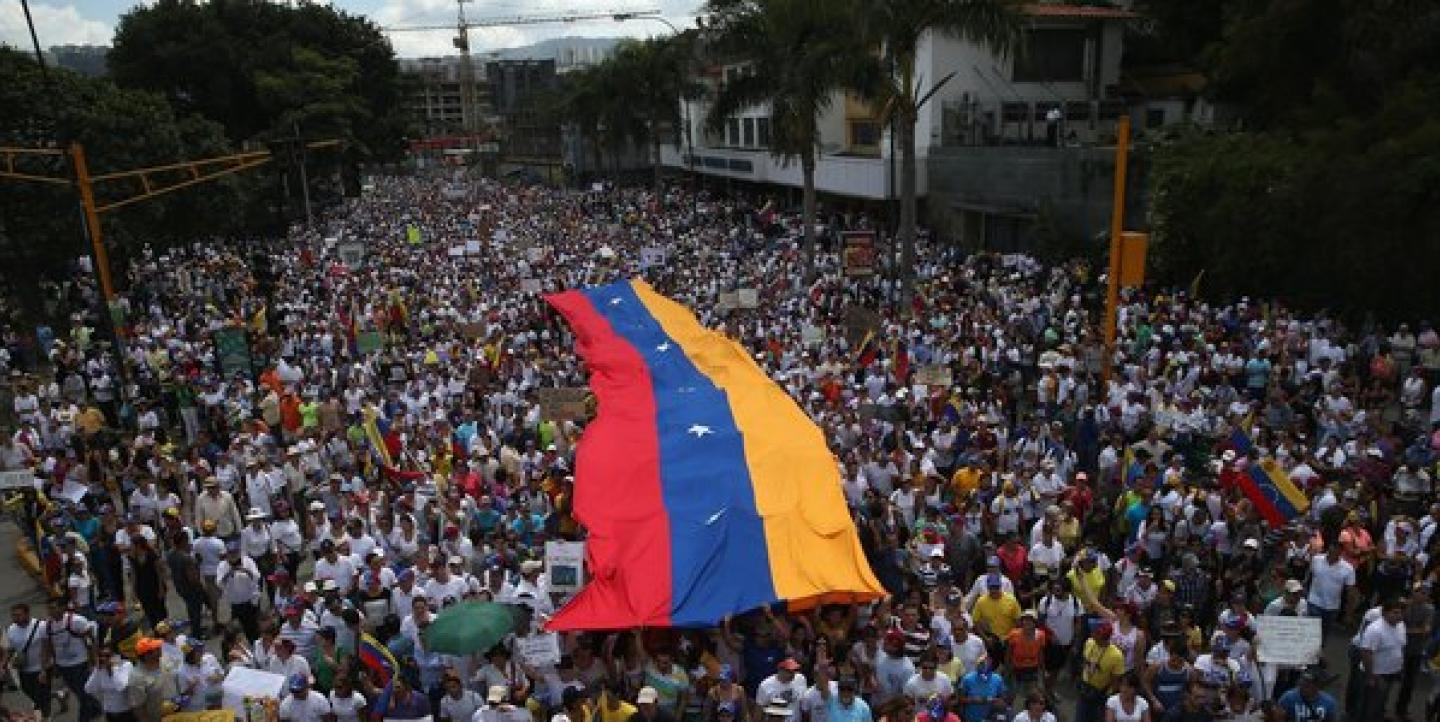Forget about the 99 percent. For the creators of digital media portal El Cambur in Venezuela, the focus is on the 40 percent.
Polls show that about 40 percent of Venezuela’s adult population does not hold strong pro- or anti-government views. Their main concerns revolve around socio-economic issues affecting all Venezuelans. These citizens sit in the middle politically, and few major outlets attempt to reach this segment of the population.
Since its launch in June 2013, El Cambur has focused on bringing objective news reporting to an audience that has been largely ignored by Venezuelan news media.
Now with a full-time staff of nine, El Cambur is hoping its brand of independent news coverage will awaken Venezuelans to take a more active role in civic life by equipping them with accurate and nuanced information about their communities.
Media Factory, the news incubator started by ICFJ Knight Fellow Mariano Blejman, selected El Cambur as one of three projects to receive seed funding in 2014 to help reshape the journalism industry throughout Latin America.
We spoke with José Puerta, a project manager and founding member of El Cambur, about the project’s vision, the types of content it provides for readers and how it has grown throughout its Media Factory incubation.
IJNet: Why was El Cambur needed?
José Puerta: Venezuela is not a bipolar country in political terms. It's the belief, especially in other countries [around] the world, that Venezuela is a polarized country. Speaking in political terms, [many think Venezuelans are] either with the government (Chavismo, socialist, leftist) or against the government (the opposition, rightist).
But about the 40 percent of the population is not with [either of those sides]. So we designed and created El Cambur to be a space that allows those people who are politically independent to express themselves and find content that is not aligned with those two political positions.
It was needed because until El Cambur launched, there was no media dedicated to this 40 percent of the population. Before, all the news media — digital and traditional — had either pro-government tendencies or anti-government tendencies. When we were researching our market and audiences we found that these people were invisible, and they were marginalized until elections arrive. They only exist when there is an election, but for other matters of Venezuelan life, they do not exist.
How do you decide which stories to publish?
We have two kinds of content mixed together that focus on the interests of our audience. We produce 12 to 15 stories per day, under the supervision of an editorial team. The first kind of content is aggregated content, which allows us to be on the breaking news radar.
There is a part of our audience that needs to be informed about what and when some things are happening. Aggregated content is created with three to five news writers, generally as short articles. We link to the original source, and they in turn are linked to related stories. Most of this content has embedded items that are important for every story, like tweets, video, etc. We divide this content into sections:
- “Power,” which covers politics and economics
- “Citizenship,” which covers civic groups and NGOs
- “Identity,” which focuses on minority populations
- “Trends” going on in movies, science, TV and technology
The other type of stories [we do] are the results of investigations and data visualizations that are not necessarily related to breaking news but cover important aspects of Venezuelan political and economic life.
These stories are produced by freelance journalists who are experts on the topics they write about. We have a pool of eight to 10 freelancers that we contact to cover stories. Also, we create data visualizations. We hunt for government data sets and, with the help of a digital product called Infogram (two people on our team are Infogram Ambassadors), we make this data visually accessible for our audience.
These two types of stories are decided on during a weekly editorial meeting to review stories and plan ahead. For example, we have a parliamentary election coming up December 6, so we are already thinking about what kind of content we will launch in the next months before the elections.
What do you hope your audience will achieve by reading your reports?
We hope to be one of the references for good, deep and objective journalism in Venezuela. We want to emphasize that El Cambur is not a political activist or a political actor in terms of the political parties. We aren't creating a political movement, but we find it important for democracy and civic life that this segment of the population has a place to speak and be heard. Our objective is to include them in the political debate that Venezuela has been living in since 1998, from which they have been excluded.
We hope these citizens [that make up] 40 percent of the population, with their very strong values about democracy and social promotion, take the lead in the political process, submerge themselves into the political life of Venezuela and construct a model of social collaboration rather than social antagonism.
This interview has been condensed and edited for clarity.
Main image CC-licensed by Flickr via MARQUINAM.

